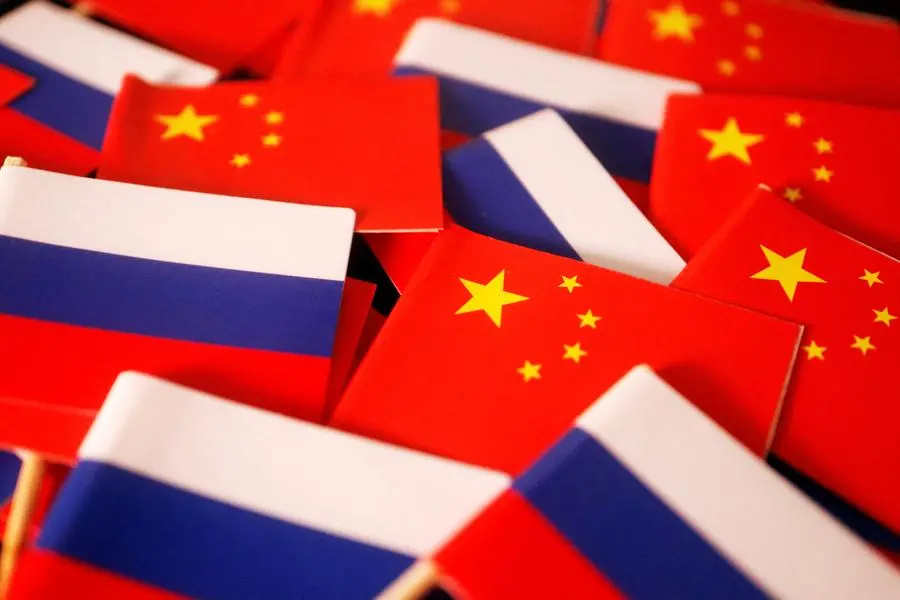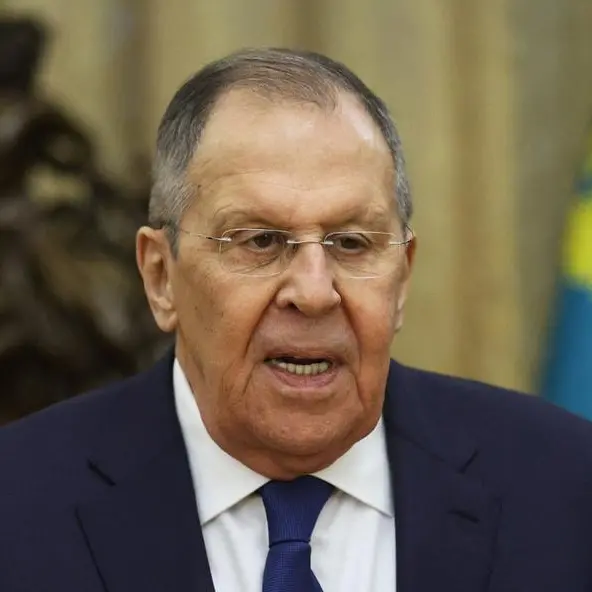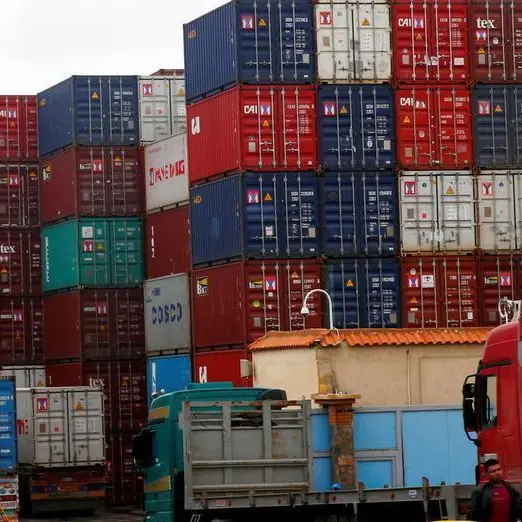PHOTO
As the threat of secondary sanctions deters Chinese banks from facilitating trade with Russia, companies are flocking to the one Russian bank with a Chinese branch and facing up to six months of delays, five people familiar with the matter said.
Russia's largest banks rushed to open accounts in China following sweeping sanctions imposed by the United States and other Western nations on Russia's financial system after Moscow sent its army into Ukraine in February 2022. By the end of that year, 90% of Russian banks had yuan accounts in Chinese banks.
Reuters reported last month that Russian oil firms are facing delays of up to several months to be paid for crude and fuel exports as banks in China, Turkey and the United Arab Emirates (UAE) become more wary of U.S. secondary sanctions.
That sanctions risk has left companies seeking alternative payment routes and led to a bottleneck at VTB Bank's Shanghai branch, the sources said. State-owned VTB is the only Russian bank with a fully fledged branch in China.
The queue of prospective account holders and limited staff to deal with the demand means some companies are waiting as long as six months to open an account, the sources, who declined to be named as they are not authorised to speak to the media, said.
VTB declined to comment.
Alternative payment methods remain available, such as through the subsidiaries of small Chinese banks in Russia, but the delays show how U.S. restrictions can have a strong knock-on effect.
'SERIOUS DELAYS'
Now, the easiest way to make payments to Russia from China is through an account opened at a Russian bank's branch in China, a person in banking circles said. The scheme was recommended by lawyers and is also used for Chinese payments for Russian exports, the person said.
But the major problem is that only VTB has a fully functioning Chinese branch, which opened in 2008. Dominant Russian lender Sberbank had planned to open a branch by end-2023, but has not yet succeeded. Private lender Alfa Bank plans to open two branches, but it is still early in the process.
"The only (Russian) bank branch open in China is not that big and recently they've had quite serious delays with processing documents," said one source.
The problems often stem from the huge number of people wanting to do business there - both Russian companies and large Chinese firms who want to deal with sanctioned companies in Russia, the person said.
"And of course, the bank prioritises large clients when choosing clients."
Another person engaged in payments said only having one Russian bank in China was posing difficulties, but that patience was required.
Having to wait for all documents to be processed was causing delays of up to six months, the person said.
Trade between the two countries ballooned to a record $240 billion in 2023, with China buying more Russian oil and supplying Moscow cars and machinery iun particular. But as China and other Asian countries have increased trade with Russia, the United States has sought fiercer deterrents.
Russian business people started drawing attention to settlement issues with Chinese banks in January. An additional three sources said Chinese banks were turning away Russian business.
"Problems with Zhejiang Chouzhou Commercial Bank started for us at the beginning of February," one of the people said. Zheijang and other Chinese banks suspended settlement operations with Russia following a U.S. warning of secondary sanctions in December, they said.
Zhejiang and China's central bank did not immediately reply to Reuters requests for comment on a public holiday in China.
The person referred to a U.S. Treasury executive order published on Dec. 22, 2023, which warned that Washington could apply sanctions for the evasion of the Russian oil price cap on foreign banks and called on them to boost compliance.
LACK OF TRUST?
Another person familiar with the situation said there was a queue of two to three months for Chinese suppliers trying to open accounts with VTB Shanghai.
"I know companies that have not opened an account for six months," the person said.
Payment delays reduce revenue to the Kremlin and make them erratic, allowing Washington to achieve its dual policy sanction goals - to disrupt money going to the Kremlin to punish it for the conflict in Ukraine while not interrupting global energy flows.
"If the account is already open, then there are no special delays, but not all companies on the other side (foreign) are ready to work through VTB," said a Russian oil market source involved in exports.
Another oil industry source said it would be good if more Russian banks opened branches in China as it would mean fewer compliance issues.
"Chinese banks trust us less, and we do not know and do not always understand their requirements," the person said.
The prospect of more Russian branches seems unlikely.
Sberbank was unable to get China's permission to open a fully operational branch, according to one source.
"They had no chance because they began to deal with this issue after they came under Western blocking sanctions," the person said.
Sberbank declined to comment.
(Reporting by Reuters in Moscow; additional reporting by Casey Hall in Shanghai; Writing by Alexander Marrow, editing by Emelia Sithole-Matarise)





















